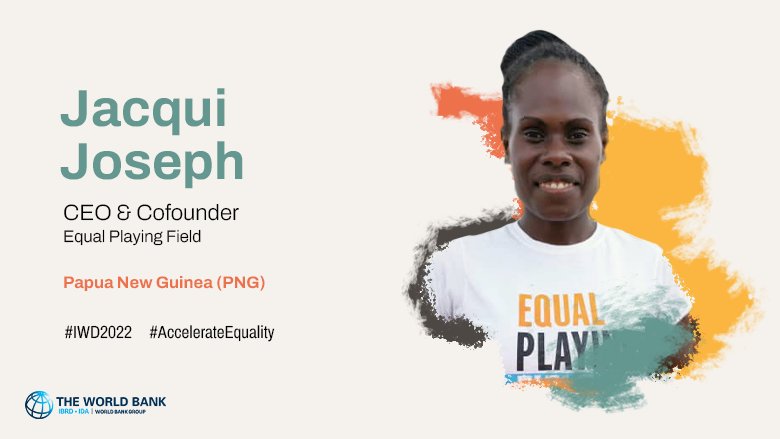My co-founder Adam and I have always been very passionate about working with young people, especially youth and children. Sports became the vehicle for us to deliver our messages, especially around respectful relationship education and life skills for young people. You will always see young people playing on a community field wherever you go in PNG. Sport was the one thing that was engaging a lot of our audiences, so we used sport as an effective tool to bring out our messaging.
Passionate, energetic and a leader.
Everything in life connects. The decisions that you make in your family impact everybody around you. Looking at gender inequality in PNG, we still struggle to listen to men, women, youth and different groups of people when making decisions about change. When we don't have consensus that can, ultimately, affect the environment. We're one people and we live on one earth and everything we do is connected.
My advice is to work hard and keep building yourself. Don’t stop because something gets tough or if people around you are not supportive.
Working steadily has put me at the table where I contribute to decisions. I often find myself in situations that I used to think were very hard to access, but now I find those spaces come and look for me. A huge highlight of my leadership journey is just working hard and realizing that if something is meant for you it will come.
Another issue is the lack of women in the PNG Parliament. Systems around us need to better support women and we need to hold those systems accountable. If people aren’t doing their job, then my responsibility lies in building a generation that is going to hold leaders accountable. I will invest my leadership in building up young people to become good citizens and to make good decisions. That’s why I have hope: knowing that I work with the future of this country. They can change what the future will be.
The NGO space is a great space to be in. There is no bureaucracy and you are free to speak. That means that we can see a problem in the system and do something to resolve it. We can show results.
In our journey with Equal Playing Field we’ve looked at the problem, we find the gaps and then try things out. We’ve found that it is very effective to deliver school-based respectful relationship education, and empower and educate teams of youth facilitators. We understood the gaps in previous approaches, and looked for new solutions. If you’re not in the communities, you don’t understand where the gaps are.
Remember that you are a leader even if you are in the home and looking after your family. Sometimes people believe that leadership requires you to hold a high office or have a big following of people behind you, like politicians or Members of Parliament.
But women need to see themselves as leaders where they are. If you are providing for your family, you're a leader. If you are a midwife in a village community helping to deliver a baby, you’re a leader. If you're a teacher in the classroom, you're a leader. We need to look at leadership as something that is related to where you are and the space you come from. You draw in a community. That, I believe, is how we can create a parliament one day that has more women.
**The views expressed in this interview do not necessarily represent the views of the World Bank Group.

